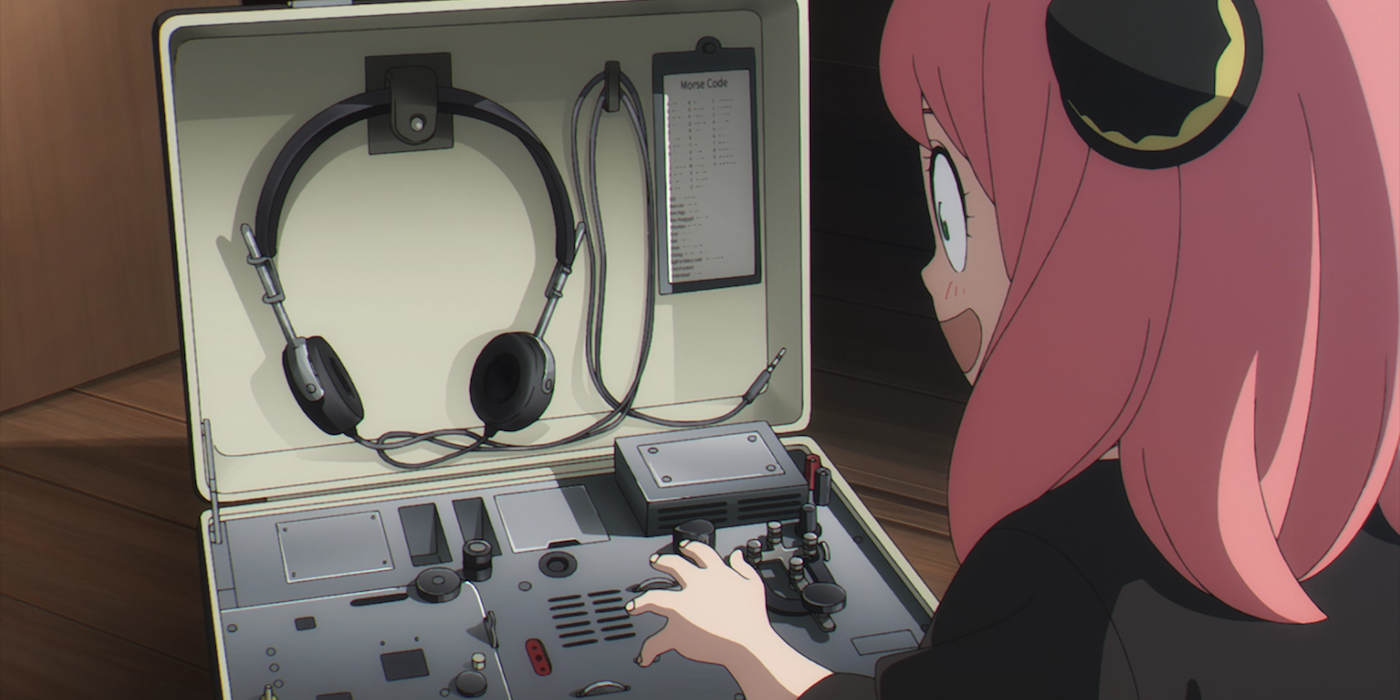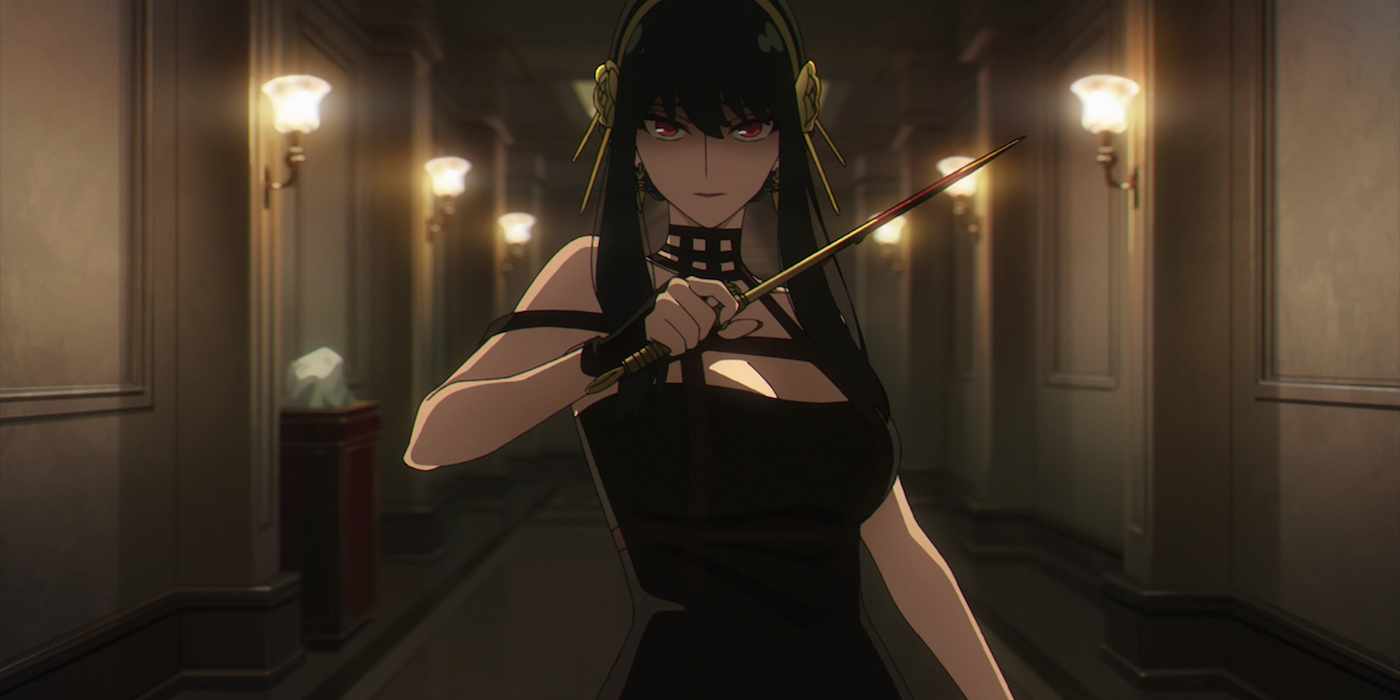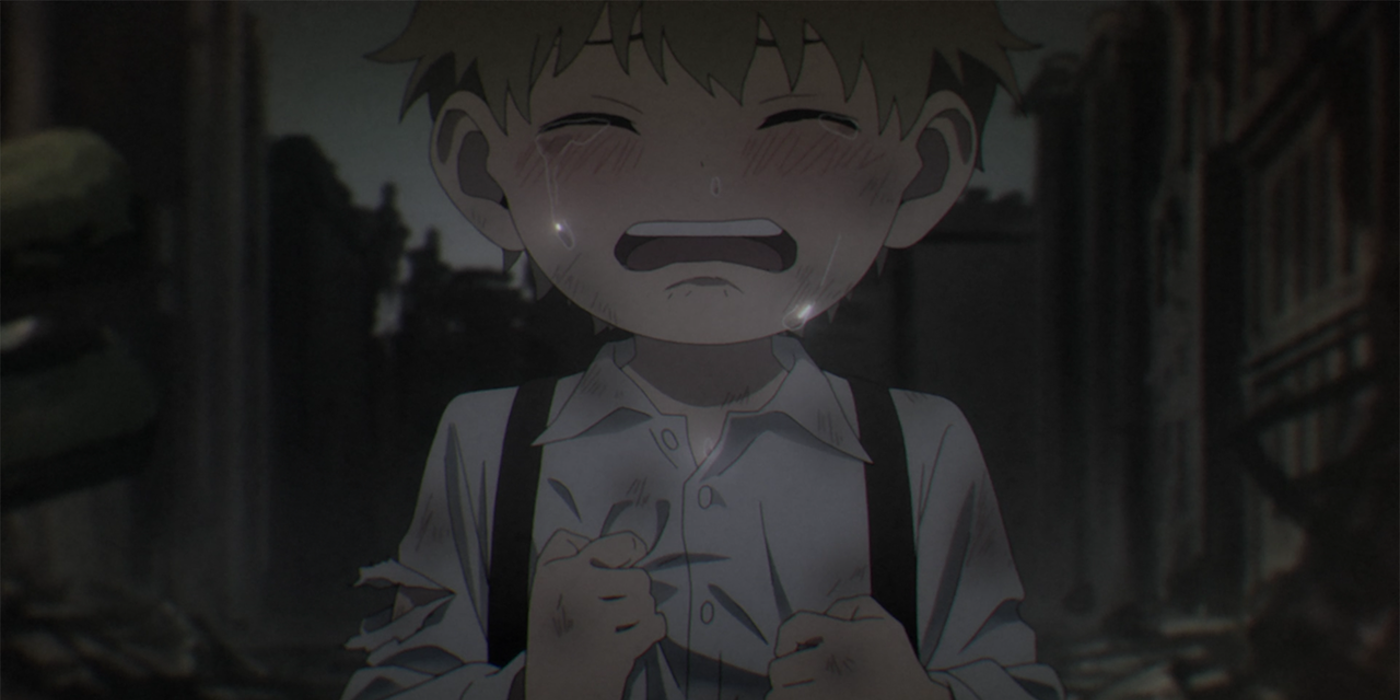While it might be odd to think of it as such, the raucous spy comedy SPY x FAMILY actually doubles as a compelling Cold War drama. Yet that only leads to the question of what makes this story relevant to the modern age. Spy stories are certainly nothing new. In fact, they tend to reflect the time period in which they're made. So the question is why SPY x FAMILY needed to be a Cold War story — 30 years after the Cold War ended — and why it works for the narrative overall.
SPY x FAMILY debuted on Shonen Jump+ in 2019 as the creation of mangaka Tatsuya Endo and his editor, Shihei Lin. The series features a family of convenience, wherein each of the three main members has some sort of earthshattering secret. The father is a spy, the mother is an assassin, and the daughter is a mind-reading Esper. SPY x FAMILY takes place in what's clearly an analog of Cold War-era Europe, with several blatant references to media, products, and culture of that time period. There are countless parallels, most notably that the entire thing revolves around the "unsteady peace" established after a war that ended around 10 years prior. The story largely revolves around the spy character, Agent Twilight, trying to raise his adoptive daughter as part of his mission to get close to a powerful bureaucrat with supposed plans of igniting a new war.
At a glance, the SPY x FAMILY anime may be a pure Shonen Jump comedy, but during the more somber moments of the series, it becomes clear that the reason for the Cold War setting is that the narrative simply works best in that environment. It's historically significant to the main thrust of the series, given the impact of spies during the actual Cold War. Just as well, it's also the most thematically appropriate setting possible, due to the series' emphasis on lies and deception — hallmarks of the Cold War era. Yet it all works because of the timelessness of the ideas themselves.
Why SPY x FAMILY Had To Be A Spy Story
The decision to create a spy story wasn't an especially complicated one, but that decision likely led to the choice of the Cold War setting. The writer-editor team of Tatsuya Endo and Shihei Lin had been working together for a decade. Endo-sensei was involved in a handful of other works, including two serializations and a number of one-shots, including the three that would act as the basis of the new project: Rengoku no Ashe, I SPY, and Ishi ni Usubeni, Tetsu ni Hoshi. They wound up contributing to what would eventually become SPY x FAMILY, albeit in largely superficial, surface-level ways. Yet it was because of the success of I SPY that Lin suggested to Endo-sensei that he make his next serial work another spy story.
In the time between the two projects, Endo-sensei had the thought that they should perhaps be trying for something a bit more realistic than his prior work. I SPY was largely a romantic comedy. SPY x FAMILY is similarly comedic but has a number of far more serious undertones and themes littered throughout that showcase a sort of realism that I SPY didn't especially have. In fact, that desire for a more realistic story likely had a great deal to do with the decision to set SPY x FAMILY in a world at the height of a tense Cold War. More mature and realistic themes tend to be best served by more mature and realistic settings. However fantastical the superficial aspects are, the Cold War environment is one that the real world is all too familiar with.
Why SPY x FAMILY Is Set During A Cold War
All that said, spy stories have been around for 200 years. The very first spy novel, The Spy, was published in 1821. Yet the genre persists and continues to evolve to reflect the times. SPY x FAMILY is deliberately set in an environment that echoes an arguably bygone era because of the historical significance of that era to the very concept of spies. It's evident based on the climate of paranoia that the series presents. But nowhere is it more apparent than with SPY x FAMILY's James Bond references. As the anime's story is meant to reflect the era of the Super Spy, there's no better point of reference than a classic literary character and cinematic juggernaut like 007.
Created in 1953, in the early days of the Cold War, the James Bond character was essentially a direct product of the information wars that were starting to overtake the actual combat. He exploded in popularity in the 1960s following the launch of the Bond movie franchise. The first installment, 1962's Dr. No, enjoyed success no doubt in part due to the mania over spies in the media at the time, as a result of the concerns brought about by the Cold War itself.
The paranoia of "The Red Scare" generated by the Cold War is something heavily echoed in SPY x FAMILY. People in this world are fearful of another war. So much so that they often report on one another to this world's version of the Secret Police, suspecting their fellow citizens of being an enemy spy over the most asinine of reasons. This factors heavily into the motivation for the assassin Yor "marrying" Loid Forger, a.k.a. Twilight. Single women are being reported simply for being single, and that would complicate things for Yor as well as for her secret job. But that paranoia also breeds an environment that's perfect for spy stories because it inherently results in the need for a spy's skillset of stealth, information gathering, and most importantly, deception.
Why SPY x FAMILY's Cold War Narrative Works For The 21st Century
SPY x FAMILY's Cold War setting is thematically appropriate because the ideas of that historical narrative are timeless. It's a story about the lies people tell and the masks they wear — a concept that's indicative of no specific time period because it's steeped in human nature. The series goes out of its way to establish that every significant character is someone who wears a mask or lies regularly. The Forger family is the most obvious example of this, featuring a spy in enemy territory, a contract assassin, and an esper who can't tell anyone about her powers. Characters who'll show up later aren't all that they appear to be either, including various other agents, Yor's own brother, even a school bully. All of these characters are liars, yet they all tell themselves whatever they think they must in order to justify these lies. This gets at the significance of lies to the human condition, whether it be for love, family, or a more peaceful world.
The situation between the East and West within the series is what facilitates this climate of lies. The characters largely come up with the justifications for their lies due to the ramifications of a previous war that touched each of their lives. The first episode of the anime most prominently shows this with a young Loid crying and alone after the war has decimated his home. Thus he steeled himself and became a spy, the ultimate deceiver. Yor is a character who lost her parents and took on a job as an assassin to financially support herself and her little brother, though the group she works for has an extreme patriotic bent, presumably due to the war. It's the shadow of the previous war that leads to the tense new Cold War, where paranoia is so high that these secrets feel necessary. Ultimately, the Cold War represented in SPY x FAMILY is perfect for the series as it reflects the historical significance of the spy and perfectly accentuates the themes of the narrative.




